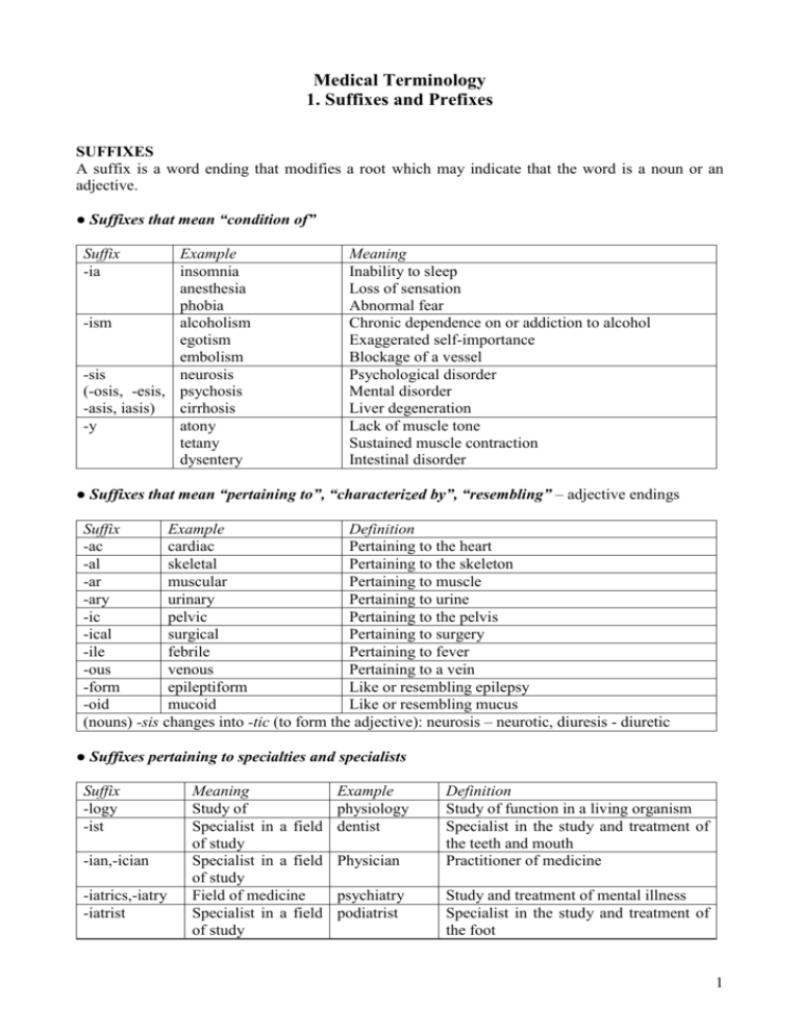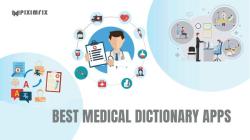What does medical terminology mean?
Medical terminology refers to the specialized language used in the field of medicine and healthcare to describe various aspects of the human body, medical conditions, treatments, procedures, and healthcare-related concepts. It is a system of words and terms that are often derived from Latin or Greek roots, and it serves as a standardized means of communication among healthcare professionals.
Understanding medical terminology is crucial for effective communication within the healthcare industry. It allows healthcare professionals, such as doctors, nurses, pharmacists, and medical researchers, to convey precise and specific information about patients, diagnoses, treatments, and other medical aspects.
Key components of medical terminology include:
Word Roots: The base or core of a medical term that generally comes from Latin or Greek. It provides the essential meaning of the term.
Prefixes: Attached to the beginning of a word to modify or qualify its meaning. Prefixes usually indicate location, time, number, or status.
Suffixes: Added to the end of a word to modify its meaning, often indicating a procedure, condition, or disease.
By breaking down medical terms into these components, healthcare professionals can analyze and understand the meaning of complex terms. For example, the term "cardiomyopathy" can be broken down into "cardio" (relating to the heart), "myo" (relating to muscles), and "pathy" (meaning disease). Understanding these components helps in deducing that cardiomyopathy refers to a disease of the heart muscle.
Medical terminology is essential for accurate communication and documentation in healthcare settings, as it reduces the risk of misinterpretation and ensures a standardized and precise exchange of information. It plays a crucial role in medical education, clinical practice, research, and the development of healthcare literature.
The Power of Precision: Medical Terminology in Healthcare
1. Significance of Medical Terminology:
Medical terminology holds immense significance in healthcare, serving as the cornerstone of accurate communication, patient safety, and effective care:
- Precision and Clarity: Standardized terms ensure everyone involved in a patient's care (doctors, nurses, pharmacists, etc.) understands information consistently, reducing misinterpretations and errors.
- Documentation and Recordkeeping: Accurate medical terms facilitate clear and concise documentation of diagnoses, treatments, and patient history, aiding future care and legal requirements.
- Research and Education: Standardized terminology fosters collaboration and knowledge sharing within the medical field, driving advancements in research and education.
- Global Communication: A common language enables effective communication and collaboration among healthcare professionals worldwide, especially in emergencies or consultations.
- Patient Understanding: While not a replacement for clear communication, some common medical terms can empower patients to participate actively in their healthcare decisions.
2. Facilitating Communication:
Medical terminology acts as a bridge, enabling precise and efficient communication in various aspects of healthcare:
- Clinical communication: Healthcare professionals share crucial information about patients clearly and accurately, using standardized terms for diagnoses, symptoms, medications, and procedures.
- Patient-provider communication: While doctors should explain things simply, using some medical terms can ensure they convey accurate information and avoid ambiguity.
- Medical records and reporting: Accurate terminology ensures clarity and uniformity in medical records, facilitating communication among different healthcare settings and providers.
- Research and education: Precise terms enable clear communication of research findings and medical knowledge among professionals and learners.
3. Learning Resources and Courses:
Numerous resources and courses can help you delve into the world of medical terminology:
- Online courses and certifications: Many universities, colleges, and online platforms offer courses in medical terminology, leading to certifications.
- Textbooks and study guides: Numerous dedicated textbooks and study guides provide foundational knowledge and practice exercises.
- Medical dictionaries and online resources: Websites like WebMD, MedicineNet, and National Institutes of Health offer definitions and explanations of medical terms.
- Medical terminology apps: Interactive apps can help you learn and practice medical terms on the go.
- Shadowing or volunteering in healthcare settings: Observing healthcare professionals use terminology in real-world scenarios can offer valuable insight.
Remember, the best approach often involves combining different resources to match your learning style and goals.
By understanding and utilizing medical terminology effectively, you can contribute to improved communication, patient safety, and overall healthcare quality.













